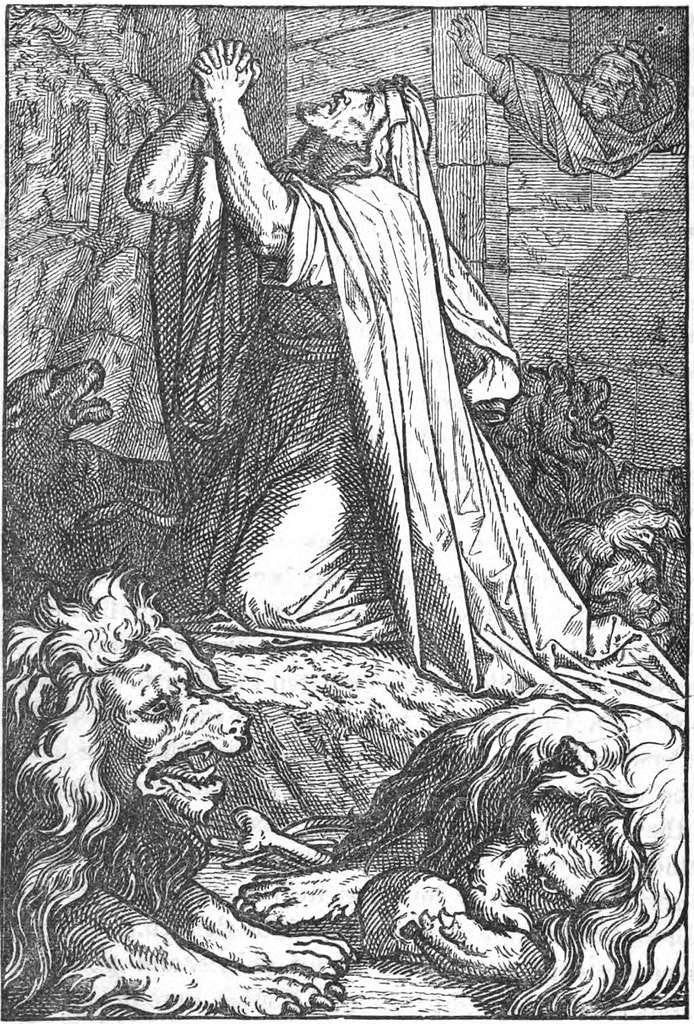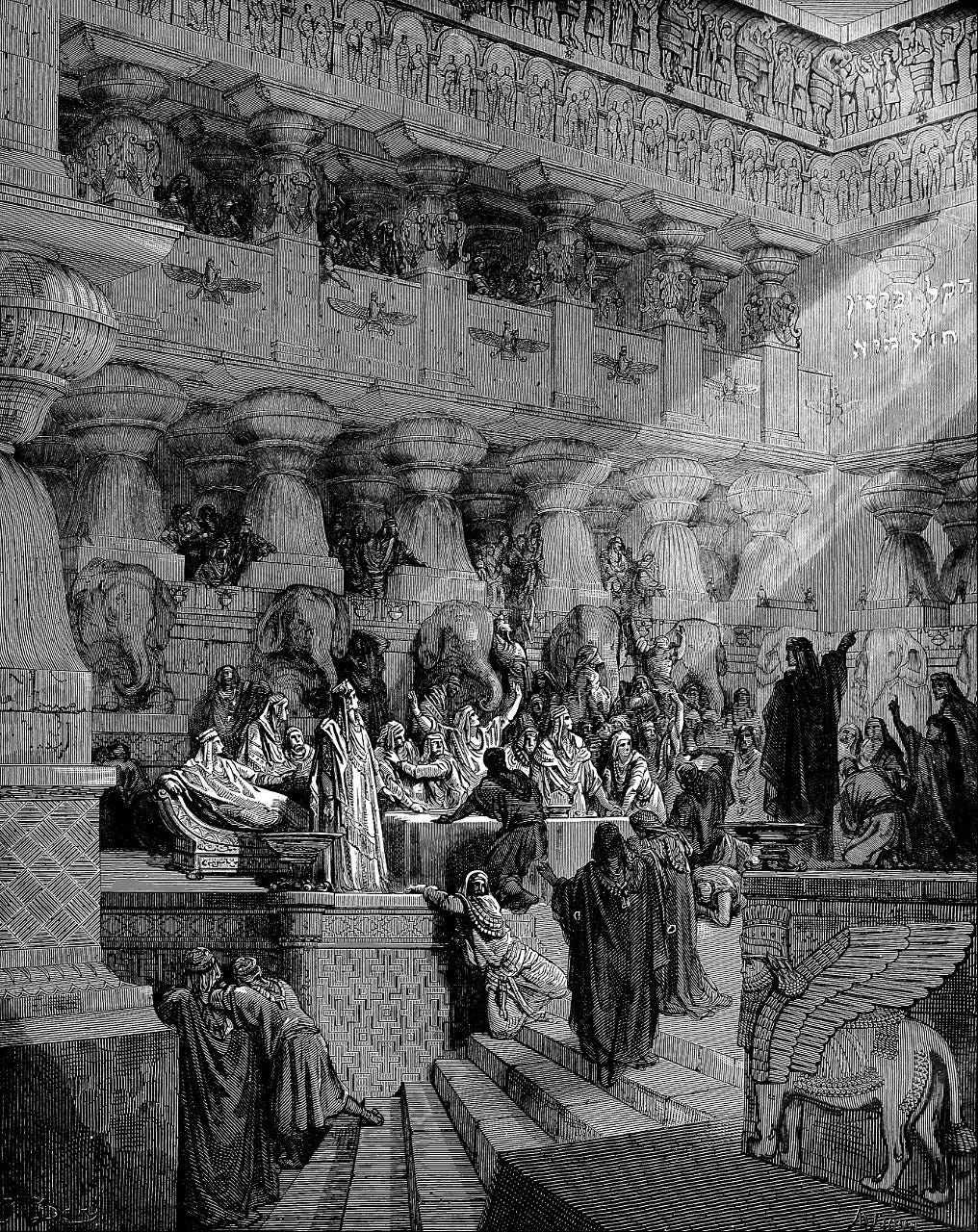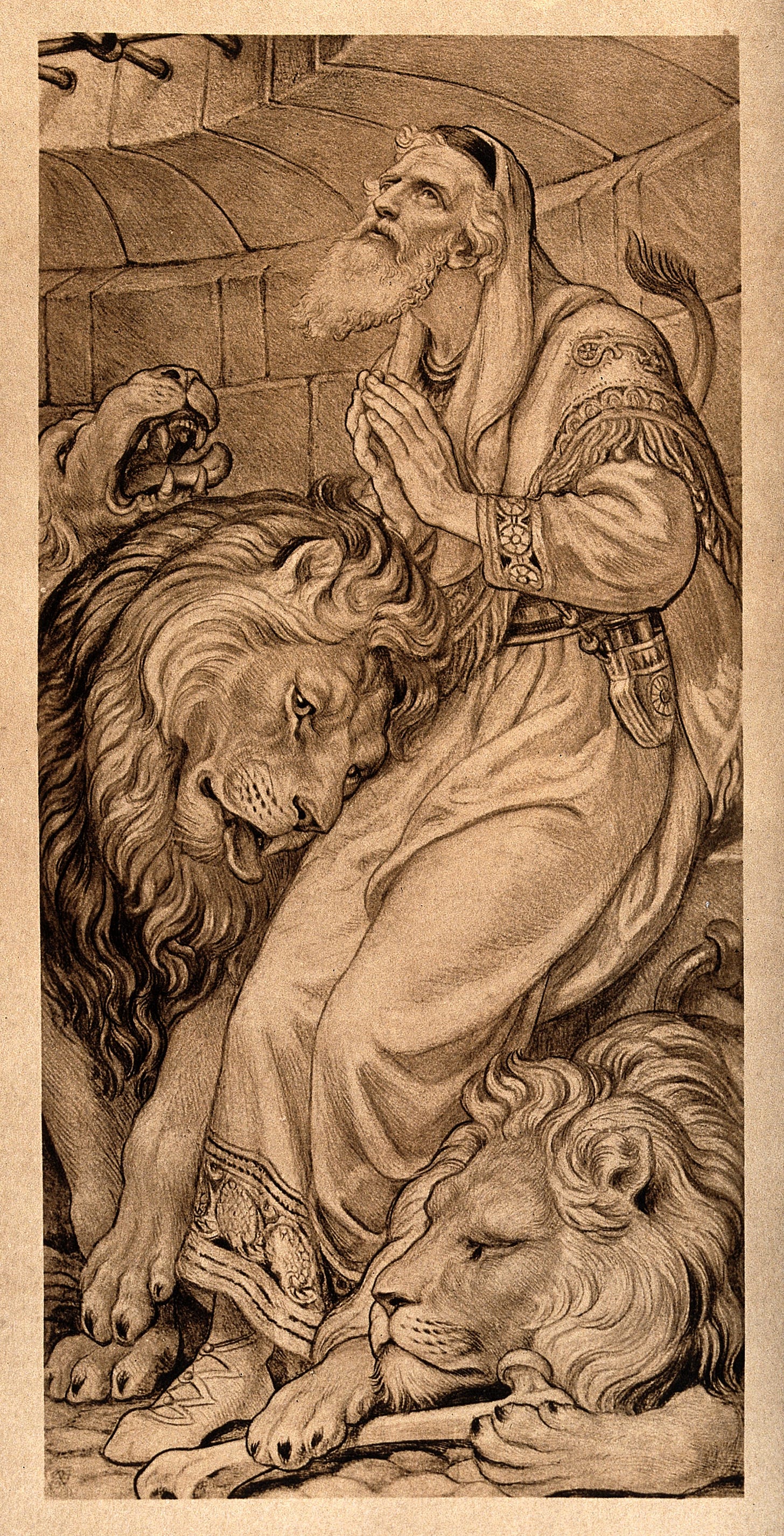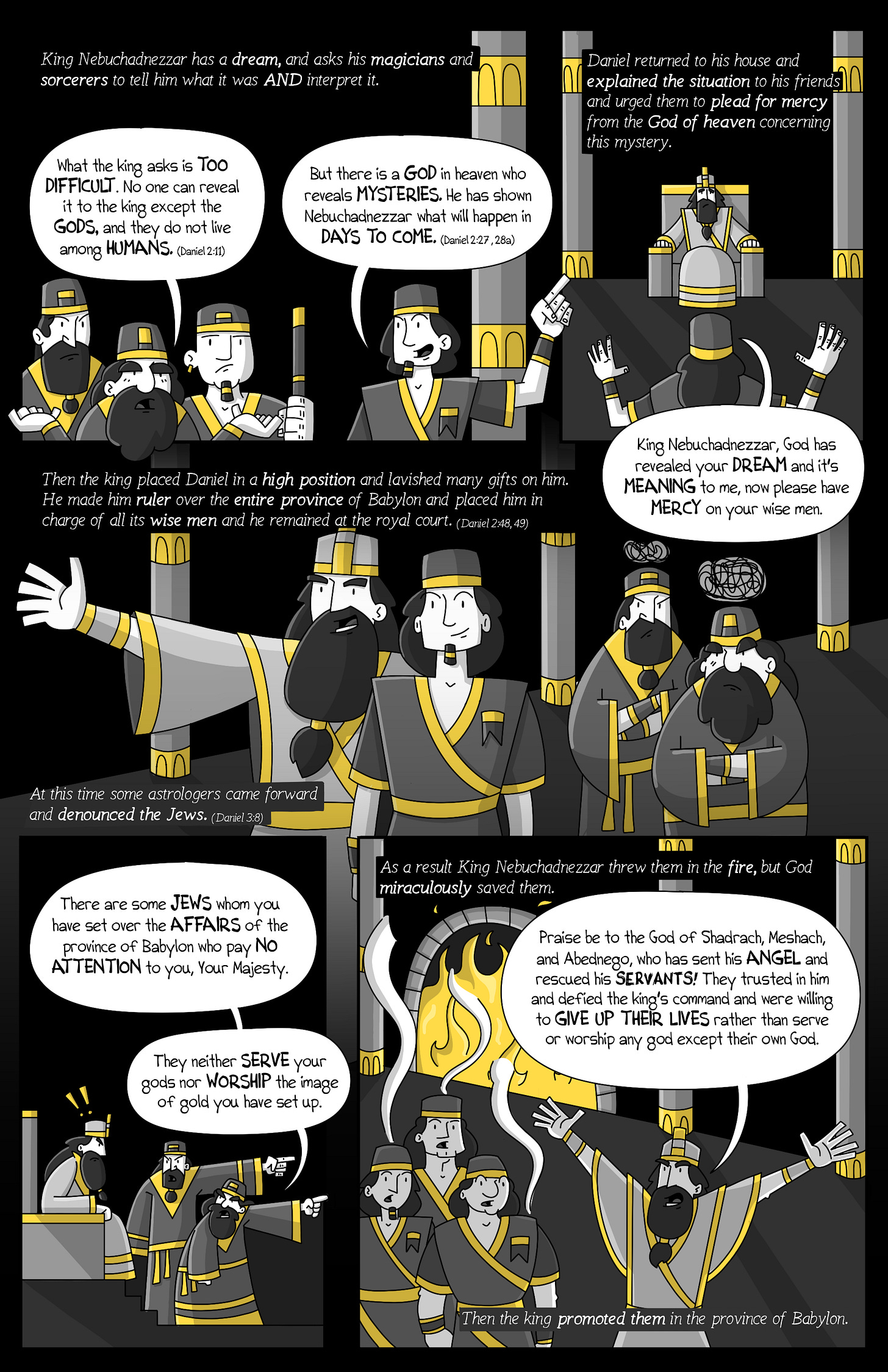Believing in Babylon (full comic)
A short graphic novel following the biblical story of Daniel.

Growing up, Daniel was a familiar and favorite story. Who doesn’t remember learning about the young men eating only vegetables, not bowing to the statue or praying to God despite the decree to not? It’s the story of standing up for your faith in a hostile culture, and it’s also the story of seeking the flourishing of that very same culture.
Earlier this year, my wife, Leanne, and I went to rural Pennsylvania for my first visit to the Sight & Sound Theatre in Lancaster to see their musical, Daniel. The show is based on the Biblical book and character Daniel, who was exiled as a young man from Israel into Babylon (modern Iraq) by King Nebuchadnezzar II. Daniel was forced to integrate into Babylon’s elite society in their attempt to assimilate the captured Israeli people into Babylonian society. If you know the story at all, you will remember the account of “Daniel in the Lion’s Den”, when he was set up by competing “wise men” for not stopping his prayers to God. What you may not remember is that Daniel ended up working as the right-hand man to Nebuchadnezzar, who not only cruelly defeated and deported the Israelites, but also eventually destroyed the Temple in Jerusalem while Daniel was still his top deputy!
I am allergic to mediocre (or worse) Christian creative content, but was encouraged by people I trust that the production value at Sight & Sound is world class. They were right. But more important than the production value was how the play explored the relationship between Daniel and his three friends as they navigated living in a foreign land. One wanted to burn down Babylon, another wanted to “eat the meat sacrificed to idols,” but it was Daniel who showed the way be “in the world but not of it” as Jesus would later pray for His followers:
“And I am no longer in the world, but they are in the world, and I am coming to you. Holy Father, keep them in your name, which you have given me, that they may be one, even as we are one….But now I am coming to you, and these things I speak in the world, that they may have my joy fulfilled in themselves. I have given them your word, and the world has hated them because they are not of the world, just as I am not of the world. I do not ask that you take them out of the world, but that you keep them from the evil one. They are not of the world, just as I am not of the world.” (John 17:11-16)
Daniel is a story of standing for your faith at all costs, but it is also a story of how to accommodate the culture without assimilating. And, as Jeremiah urged the exiles, it is a story of seeking the welfare of the city while not making it your permanent home.
In many ways, the story of Jews living in exile in a foreign land is much closer to the New Testament language of our being sojourners in this world. I’ve always bristled a bit at songs we sing in church that claim “this world is not my home.” I worry it can affirm a lack of attention to the redemptive work God has called us to hear and now. But, in contrast with the desire of the Jews to make Israel as a nation fully obedient to God’s law, there is a truth that any nation and culture we as Christians find ourselves in is transitory. We are sojourners in this world, and won’t be finally home until Jesus returns and establishes His reign over the New Heavens and the New Earth.
When Christians pursue living faithfully in exile, we call it living as salt and light. There is an overuse of the term “Christian Nationalism,” but when Christians believe that the government should actively make it Christian and preference Christianity in law there is no other name for it, or when we advocate applying Old Testament civil law we call it dominionism or theonomy. Our founders avoided these temptations, although it was the norm in Europe at the time, and neither is what Jesus calls us to when He urged His followers to “render to Caesar the things that are Caesar's, and to God the things that are God's.” (Mathew 22:21)
When we live in a “foreign land” we are inevitably required to work with, not primarily resist, the people and institutions that we live amongst, whether or not they share our faith and convictions. This will inevitably produce tension, and require discernment. We are called to live in this “now but not yet” tension, and we are invited to seek God’s wisdom through the Holy Spirit.
Daniel had to do the same. He lived in the tension, and he sought wisdom from God. Daniel accommodated the Babylonian regime in ways that might surprise you:
Daniel went to school where he studied pagan myths, occultic practices, and the language of his time, which would reflect Babylon’s dominant pantheistic and polytheistic worldview.
Daniel and his friends were willing to take on pagan names, which in the case of Daniel was Belteshazzar which means “Bel protects his life” (Bel being a Babylonian deity).
Daniel served King Nebuchadnezzar even though Babylon defeated Israel with brutality, robbed the Temple of its gold and silver, and eventually destroyed it. In fact, not only were Daniel and his friends given massive oversight and responsibilities for the “welfare of the city,” Daniel was “in King Nebuchadnezzar’s court” which meant that he was in the inner circle and was surrounded by the elites of the society.
Daniel had oversight over all the “wise men,” which would have included magicians, astrologers, enchanters, and sorcerers.
Finally, Daniel didn’t just serve King Nebuchadnezzar, he continued to serve Kings Belshazzar (Nebuchadnezzar’s son) and Darius and sought the “welfare of the city” until the first year of the reign of King Cyrus.
Many Christians focus on passages in the New Testament which call on us not to be yoked to unbelievers, to not affiliate with the world, to be separate, and to ensure that we aren’t influenced by the world. It is true that the Apostle Paul urges us in Romans 12:2, “Do not be conformed to the pattern of this world…”
However, Daniel’s example allows us, for example, to:
Work for a secular company — so long as we are not asked to compromise our core Christian beliefs, it is possible and permissible to work somewhere that is neither implicitly nor explicitly Christian. For example, you could work at a tech company inventing or perfecting useful technology or in Hollywood writing scripts or acting, all while living by your Christian principles and trying to work for the common good.
Be in the Halls of worldly power — many well-known (and even more lesser-known) Christians have worked at both Ivy League Universities and in the government (from local up to the federal level). Again, as Christians, we can use such positions of power to influence those around us for the common good. We can also seek out other Christians who might work in proximity to us, in order to support and build each other up, much like Daniel and his three friends did.
Study the culture and even participate in it — as Christians we can attend secular universities in order to learn more about ours and other secular cultures. We should know and understand other world views that we do not share so that we can better engage with these points of view in order to find common ground and be able to defend our faith when necessary. We should not be afraid to engage the culture.
Collaborate with non-believers for the welfare of the city — this is the core of both the historic Clapham Sect (for whom we are named) and the core of what we at the Clapham Group try to put into practice. This idea is exemplified very well in Francis Schaeffer’s idea of co-belligerency, in which we as Christians can come alongside someone for the sake of a particular cause (e.g. poverty or racial injustice), even if we cannot fully align ourselves with everything that they believe.
As we have suggested, the New Testament motif for Christian living looks more like Jews in Babylon than Jews in Israel. The key to being salt and light in every aspect of our lives is in the rest of the Romans 12:2 passage:
“…but be transformed by the renewal of your mind, that by testing you may discern what is the will of God, what is good and acceptable and perfect.”
We are not like Jews in Israel, we are more like strangers in a strange land (Exodus 2:22). We are citizens of this world but our allegiance is to another. We need to seek the welfare of the city while living by Kingdom principles. And although we strive to bless those around us whom we have the privilege to influence, we wait for a New Kingdom to come.
So, how do we do this while at the same time protecting ourselves from the Evil One who “walks about like a roaring lion, seeking whom he may devour” (1 Peter 5:8), “transforms himself into an angel of light” (2 Cor 11:14) in order to deceive us, as well as being, “a liar and the father of lies” (John 8:44)?
The story of Daniel and his friends gives us some insight into “Believing in Babylon”:
Daniel knew the Bible. The fact that Daniel and his friends determined that the food to be provided to them from “the King’s table” would violate their faith indicates that they were familiar with the dietary laws as prescribed in Leviticus 11 and Deuteronomy 14. Their identity was not just grounded in their culture and tribe, but in the Scriptures themselves that they were evidently trained in.
Daniel had a community, accountability, and encouragement. As Ecclesiastes 4:12 encourages us: “And though a man might prevail against one who is alone, two will withstand him—a threefold cord is not quickly broken.” Like a lone sheep is vulnerable to being attacked, studies have shown that a child left alone will conform to a group even when they know the group is wrong. We are more easily persuaded by the ethos of a culture when we are alone and overwhelmed by it. But when we are with others who share the same worldview and convictions, we can stand firm and discern together how to engage it without being conformed to it.
Daniel was a man of prayer. Daniel went to the Lord in prayer before making a decision, to seek wisdom and knowledge. He understood the powers he was up against, but he also believed in the power of prayer, and most importantly the power of the God to whom he prayed. He went to his knees expectantly, and believed in what James would later write in 1:5-6 — “If any of you lacks wisdom, you should ask God, who gives generously to all without finding fault, and it will be given to you. But when you ask, you must believe and not doubt, because the one who doubts is like a wave of the sea, blown and tossed by the wind.”
Daniel trusted God with his life. Literally. Daniel was not willing to compromise his worship of the One True God, and was willing to die if it was God’s will. “No harm was found on him, because he had trusted in his God.” (6:24). It was not God’s will that Daniel would perish in the Lion’s den, but Daniel did not know this as he was being thrown in. He trusted more in God’s sovereignty than his own life.
Daniel gave God the glory. At every turn, whether interpreting dreams or being saved from lions, Daniel gave God the glory rather than promote himself. In return, Daniel was lifted up to positions of authority. When we boldly declare with all the saints, “Not to us, O LORD, not to us, but to Your name give glory” (Psalm 115:1), we give God the due He alone deserves. And when we live faithfully in a foreign land and seek the welfare of the city to which we have been sent, we are obedient to Jesus’ commendation when He said, “Let your light shine before others, so that they may see your good works and give glory to your Father who is in heaven.” (Matthew 5:16)
Daniel discerned what was true. In his letter to the exiles, Jeremiah (20:8-9) urges the exiles to ignore the words of the prophets who suggested that God’s deliverance was imminent:
“Do not let your prophets and your diviners who are among you deceive you, and do not listen to the dreams that they dream, for it is a lie that they are prophesying to you in my name; I did not send them, declares the Lord.”
In John 10:27, Jesus reminds us that “My sheep hear my voice, and I know them, and they follow me.”
And later in John 16:13 he said, “When the Spirit of truth comes, he will guide you into all the truth, for he will not speak on his own authority, but whatever he hears he will speak, and he will declare to you the things that are to come.”
Daniel did not compromise his religious convictions but he did “work with the enemy” to seek the welfare of the city to which they had been exiled. Daniel and his friends took on Babylonian names and became students of Babylonian culture. They even oversaw the “wise men” of Babylon who were magicians and sorcerers (and who later would betray him).
Daniel “cooperated” with the system to seek the common good. Although he was willing to die for his faith, he wasn’t going to die on every hill over which some of his Jewish colleagues might have disagreed.
-Mark Rodgers














